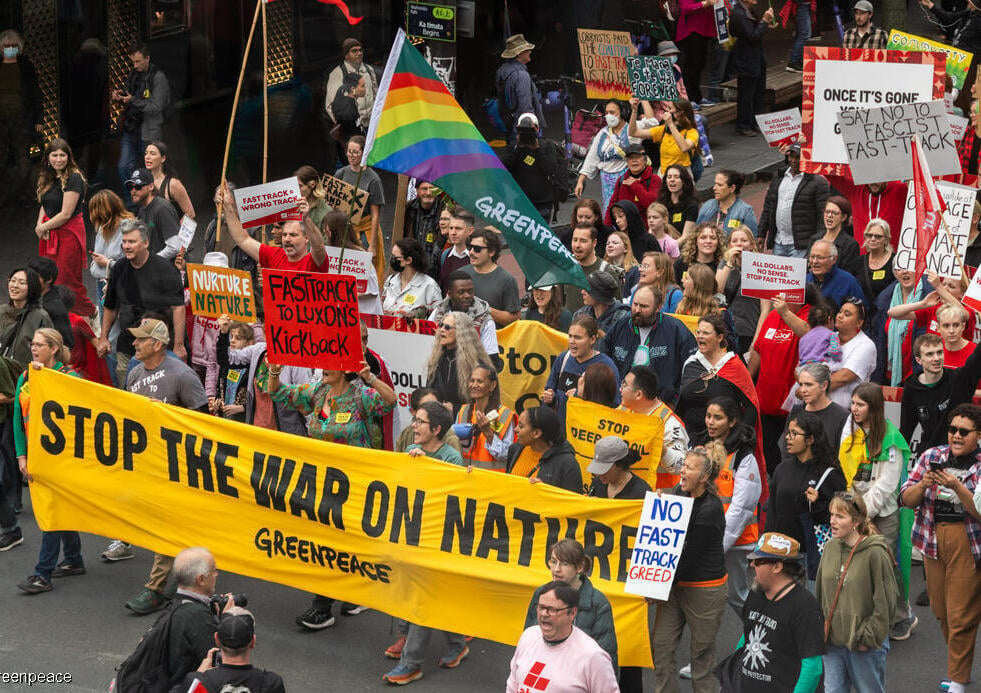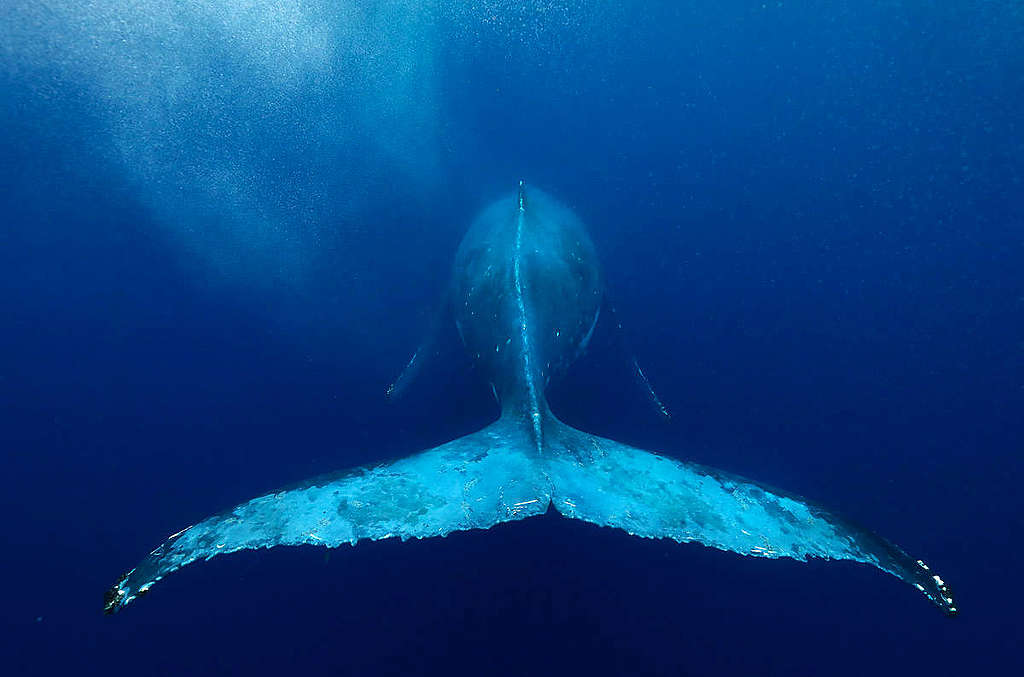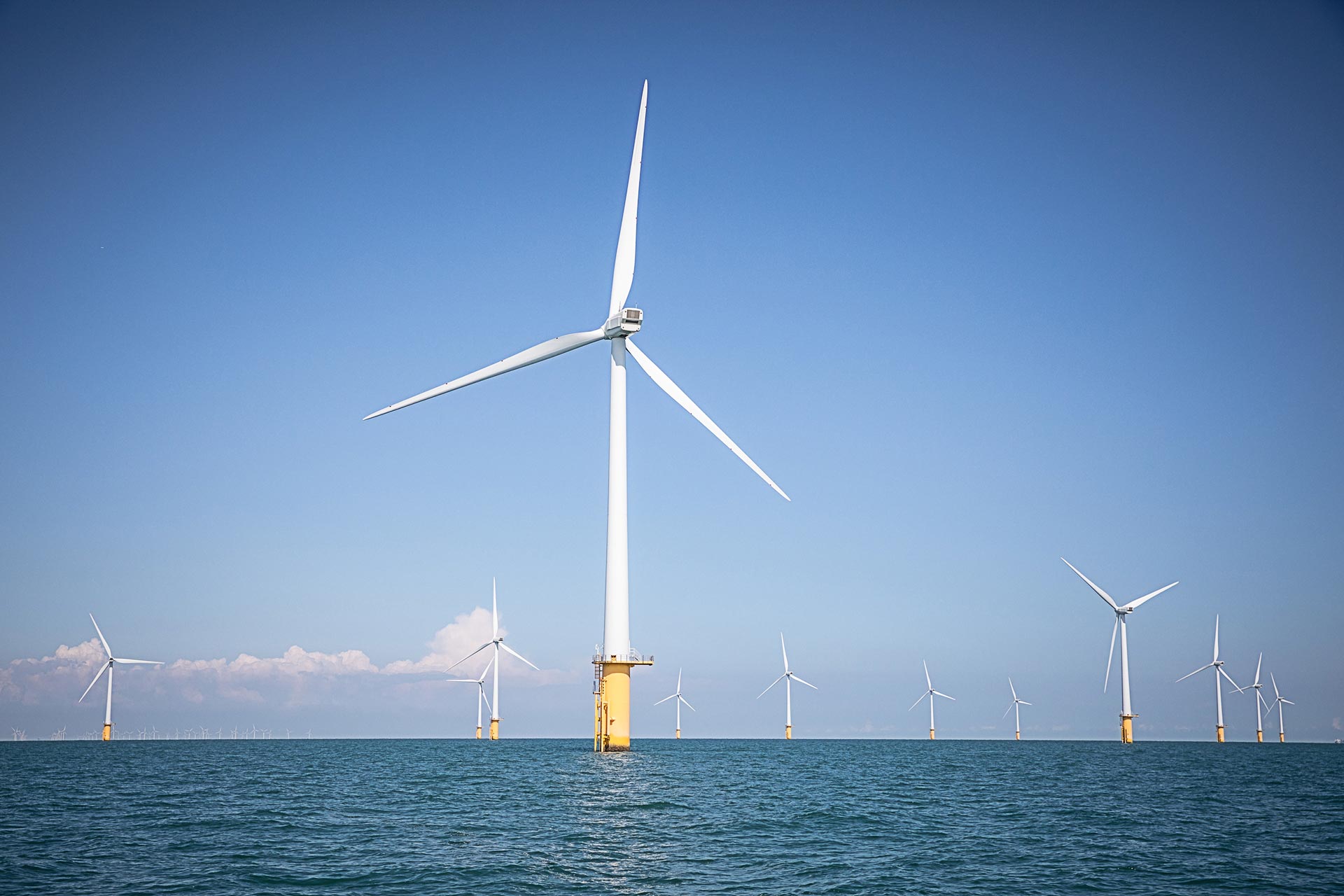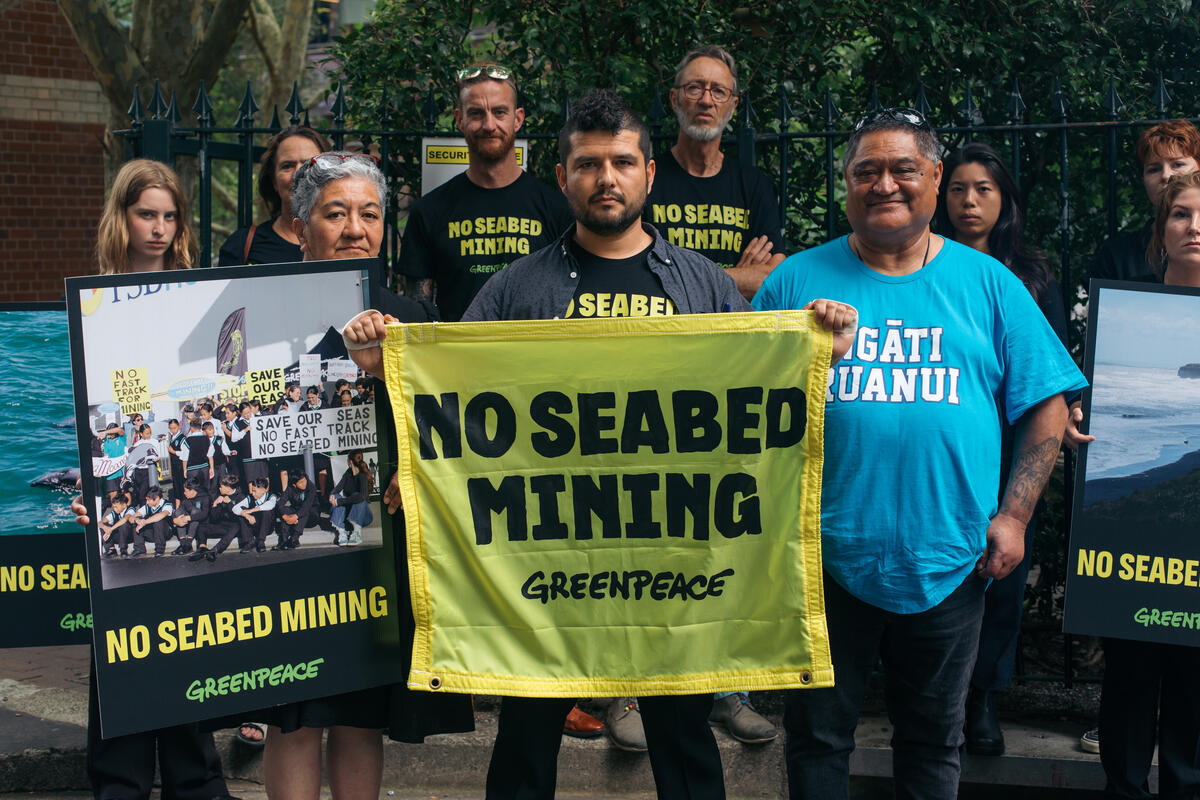- The Fast-Track Approvals Bill creates a new process that enables the Government to approve projects by bypassing legal & environmental protections
- The bill is anti-democratic, open to corruption, undermines Te Tiriti and puts nature under threat
- The fast-track bill could be used to fast-track large dams, new mining on conservation land and dangerous incineration plants – and includes things like seabed mining that have failed in court already
Table of contents
What is the Fast Track Approvals Bill?
On the 7th of March, the Government introduced a new bill to fast-track consents for development projects, which would allow corporations to bypass environmental protections and the democratic process.
This new Fast-track Approvals Bill would allow just three Ministers to approve or deny development projects without having to go through the usual checks and balances that are in place to protect nature. It would bypass not only the Resource Management Act but also the Wildlife Act, the Conservation Act, the Reserves Act, the Heritage Act, coastal permits under the Fisheries Act, the Crown Minerals Act, and the Public Works Act.
In the Luxon Government’s war on nature, the fast track bill is a heavy weapon
Christopher Luxon has labelled the fast-track bill a ‘one-stop shop’ – and it is. It is a one-stop shop for undermining democracy, removing public participation, and declaring war on nature.
After widespread and vigorous opposition to the Fast Track Bill from all quarters, in August 2024, the Government announced some changes to the Fast Track Bill, which shows they are feeling the heat and the protests and submissions had hit the mark.
However, the changes do little to alleviate our concerns. The changes don’t go anywhere near far enough. The worst elements of the Fast Track Bill remain in place. Projects will still be assessed purely on economic criteria, which totally override environmental criteria.
Two of the three ministers in the Fast Track Troica have been removed, leaving just the Minister for Infrastructure, Chris Bishop, and the decision-making on individual projects has been shifted to the decision-making panel.
Greenpeace will continue to fight to protect people and nature, regardless of what the Government does, because we know that the vast majority of New Zealanders care about looking after nature. And we know we can win against the odds because we’ve done it before in our fight to stop oil and gas exploration. But we’re incredibly concerned about the Fast-track Approvals Bill, and its implications for both people and the planet.

Sign on to this open letter to industry now to help push more of them to opt out of the Fast Track.
Add my nameIt’s complicated, but it’s important, so buckle up because we’re about to go on a whirlwind tour through the basics of fast-track consenting and the many, many issues with this model of decision-making.
What is fast track consenting?
Fast-track consenting is a process that would enable the government to approve development projects more quickly by bypassing planning legislation and the checks and balances that are in place.
In the context of this new bill, the Government plans to strip away any need for meaningful public consultation about developments that they deem to be of regional or national significance.
Projects will be sent to a panel of ‘experts advisory group’ that are hand-picked by the Government. Those experts would have a maximum of six months to consider a project and set conditions around it.
There would be two pathways for projects to be fast-tracked through this new legislation. Firstly, a project could be directly included in the legislation. These projects would be determined by the fast-track advisory group convened by the Government.
The second pathway is for an application to be made to the minister by the people who want the project to be fast-tracked, who would then send them to the panel to be considered for approval.
Why is the fast track bill so bad?
The fast-track consenting process means that a hand-picked panel with a brief to consider the economic benefits of proposed projects over and above community concerns or environmental impact. At the same time, it would suppress public and tangata whenua participation, as the process bypasses the normal opportunities for iwi, hapū, environmental experts and local communities to engage or oppose the developments.
The whole process is also wide open to corruption.
Before he was removed from the process entirely, we already saw Shane Jones’ conflict of interest in play. He had to recuse himself from decisions on fast-tracking seabed mining because of conflict between mining and fishing interests. It was telling that Shane Jones was backing seabed mining up until the point he realised that the fishing interests behind his campaign opposed it. This is a clear sign that the fast-track bill is incredibly vulnerable to corporate lobbying.
Shane Jones admitted he has a conflict of interest between seabed mining and fisheries.
Anyone can see that giving a select group of people unbridled power to approve consents without even having to consider environmental implications or local communities’ concerns is incredibly problematic. It opens the door to any of them being able to simply approve their pet projects – or, more accurately, the pet projects of the destructive industries who lobby them – regardless of whether these projects are in the best interests of the public, tangata whenua, or the environment. This is a process that is inherently open to corruption.
Minister for Infrastructure Chris Bishop has publicly committed to fast-track irrigation dams, aquaculture, and mining on conservation estate, as well as potentially seabed mining. This legislation could also be used to fast-track mega dairy farms and other environmentally destructive projects.
We already know that fast tracking new mega dairy farms and irrigation dams will lead to more water pollution. New Zealand’s biggest source of water pollution is the dairy industry, and these projects will only expand industrial-scale dirty dairy in regions where it has not previously been. Meanwhile, rural communities across the country are drinking nitrate-contaminated water, while many rivers and lakes are unswimmable.
This new fast-track bill would make things worse. In effect, Christopher Luxon’s Government has declared war on nature – and all of the places and wildlife that we love are officially under threat.
Additionally, the proposed fast track legislation threatens to undermine the Crown’s obligations under Te Tiriti o Waitangi. It does not require Ministers to give consideration to Te Tiriti, instead only referencing Treaty settlements. It does not require iwi and hapū engagement with the process of consenting.
The law also restricts the ability to appeal decisions through the court system, as would normally be possible. This, combined with the complete lack of consultation processes, is absolutely undemocratic and deeply worrying.
What can we do to fight the fast-track bill?
We’re not going to take this threat lying down. Greenpeace and many others around the country have stood up for this planet for decades, and we will continue to do so, regardless of what this Government tries to do.
Over 20,000 people turned out in June to fill Queen Street in a vibrant March for Nature protest against the Fast Track Bill and the Government’s war on nature, and tens of thousands made submissions opposing the worst aspects of the bill.
People are angry, and any company or organisation considering using the fast track would be wise to reconsider. Being associated with a project in the Fast Track, will mean they’ll be forever tarnished by that association.
It’s immediately clear that you’ll be in bad company because the Australian seabed miners Trans Tasman Resources jumped on board at the first opportunity after years of failing in court, at the EPA and weathering widespread opposition from iwi, hapū, and community and environmental groups.
Greenpeace has published an open letter to all industry leaders considering using the Fast Track, promising resistance and protest, and we invite you to add your name now to help increase its impact.

Sign on to this open letter to industry now to help push more of them to opt out of the Fast Track.
Add my nameLet’s urge any company considering using the fast track to think long and hard about whether they want to risk their social license by opting for a path that’s so obviously designed to shortcut critical environmental protections and democratic process.
We will continue to defend lakes and rivers from dirty dairy pollution – you can join our fight by adding your name to the open letter of resistance to industry and by chipping in now to help keep us in action.
We’re also as committed as ever to fighting seabed mining off the coast of Taranaki, to protecting the oceans from commercial fishing interests and deep sea mining, and to stopping any attempt at oil and gas exploration before it starts.

Seabed mining is a new threat to the oceans. Now is our chance to prevent the destruction before it’s too late.
Add my nameWe’ve faced a National-led Government hellbent on environmental destruction through oil and gas exploration before. Despite their best efforts, we fought off oil companies one by one. Petrobras, Anadarko, Statoil, Shell: all of these international oil companies gave up their permits and left, because New Zealanders resisted in great numbers.
If the Government thinks we’re just going to give up and let them declare war on nature now, they’re wrong. But we need everyone to fight this fast-track consenting bill. We need you to join us. Because together, the power of the people will always be stronger than the people in power.


